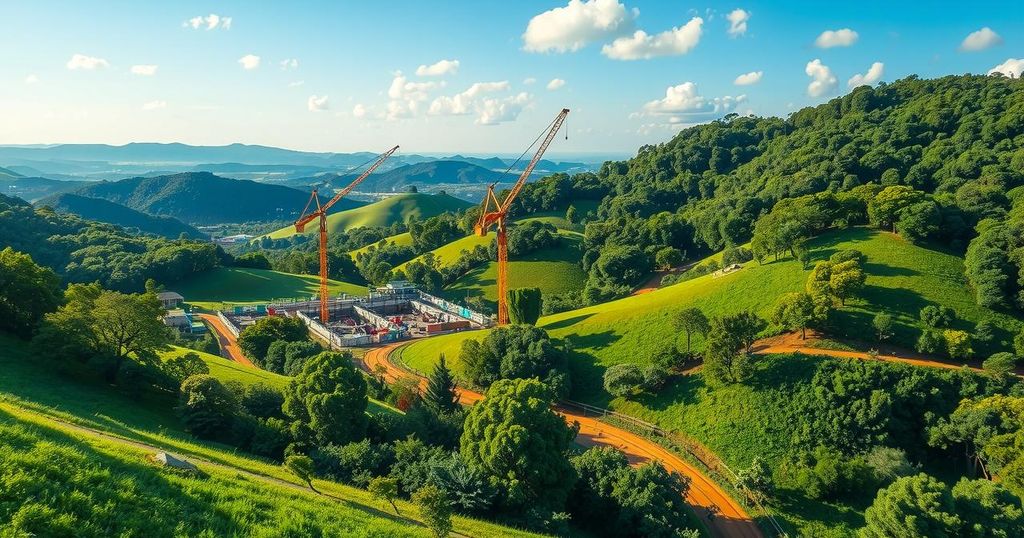Can Paul Kagame Craft a Lasting Legacy for Rwanda?

Paul Kagame, Rwanda’s president, aims to reshape the country’s image from genocide victim to an economic hub through infrastructural projects, including an airport funded by Qatar. His aspirations also extend to hosting Africa’s only Formula One circuit. However, his authoritarian rule faces criticism that could jeopardize these goals.
In the heart of Bugesera, about 45 kilometers from Kigali, lies a piece of land that embodies President Paul Kagame’s ambitions for Rwanda. This district might seem unremarkable now, but it’s set to become a bustling airport complex, primarily funded by Qatar. Kagame envisions this project as a step towards transforming Rwanda—from its horrific genocide in 1994 to a thriving economic hub, an African emirate, if you will. He aims to attract tourists eager to catch glimpses of the endangered mountain gorillas.
Kagame’s vision for the future also includes a unique sporting ambition. As an avid Formula One fan, he’s pushing for Rwanda to host Africa’s only Formula One circuit. Such aspirations reflect not just a desire for tourism but also a strategic positioning of Rwanda as a central player in both regional and international frameworks. This duality of Kagame’s legacy—balancing modernization with authoritarian rule—paints a complex portrait of his leadership.
Internationally, Kagame has garnered both praise and criticism. Some view him as a stabilizing force who has significantly improved Rwanda’s infrastructure and economy since the genocide. On the flip side, there’s ongoing scrutiny over alleged human rights abuses and suppression of dissent within the nation. Various international watchdogs constantly monitor Kagame’s rule, raising questions about whether he can maintain his grip on power while ensuring a positive legacy as Rwanda’s leader.
Domestically, Kagame’s rule is characterized by a distinct blend of economic progress and political repression. Critics argue that his government stifles opposition voices and suppresses freedom of speech. Despite this, he enjoys a measure of popularity, owing partly to the stability and economic growth that has marked Rwanda under his administration. However, it’s essential to note that this popularity remains precarious, especially as foreign interest and investment could waver should his reputation continue to tarnish.
Moving forward, Kagame faces the daunting task of solidifying his legacy both at home and abroad. While he has ambitious plans to develop Rwanda into a tourist and business destination, the success of these initiatives hinges on political stability and improving human rights. The world will be watching to see if Kagame can navigate these turbulent waters effectively. It’s evident that his journey is both a personal quest for legacy and a national endeavor to reshape Rwanda’s image. Only time will tell whether he indeed becomes the visionary he aspires to be.
Kagame’s ambitions to transform Rwanda into a leading African hub embody the complex interplay of development and political repression. While infrastructure projects and a potential Formula One circuit indicate a forward-looking vision, his authoritarian rule brings significant international scrutiny. The future holds unanswered questions about his legacy and Rwanda’s trajectory as his administration continues to evolve amidst both internal and external challenges.
Original Source: www.economist.com







